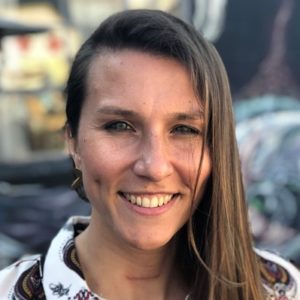

Alexis serves as the Policy Outreach Director of the USGLC. Prior to joining, Alexis spent over a decade working in human capital development focused in private, public, and non-profit sectors across multiple continents. A recent graduate of Johns Hopkins’ School for Advanced International Studies (SAIS), Alexis received a master’s degree in International Economics and American Foreign Policy studying in Bologna, Italy and Washington, D.C. Before SAIS, Alexis spent four years working in East Africa for One Acre Fund, four years with the Brookings Institution in Washington, D.C. serving the U.S. federal government, and two years with Smith College Executive Education. A native of Eau Claire, Wisconsin, Alexis completed her undergraduate degree at Smith College in Sociology and French Studies, where she spent her junior year studying and working abroad in Paris and Rabat, Morocco.
Secretary of State Antony Blinken is in China this week – his second visit in less than a year – meeting with senior officials to further the commitments made by Presidents Joe Biden and Xi Jinping at the Woodside Summit last November on counternarcotics cooperation…
Women’s economic empowerment is critical for U.S. development and diplomacy. It is key not only for growth through the direct output of the labor force but also in productivity...
USGLC brought together senior executive leaders from Airbnb, Cargill, Citi, Loews Corporation, Mastercard, PepsiCo, and Tent Foundation in New York City on Thursday, May 19 for an important conversation with Secretary Blinken on the role the private sector has played in providing humanitarian relief to the conflict in Ukraine, the next phase of reconstruction efforts, and other development initiatives to address global challenges. These leaders represent hundreds of businesses – large and small – who make up the U.S. Global Leadership Coalition.
Russia’s invasion is further complicating an already volatile global environment and impacting the lives of citizens around the world – whether on the farm or at the market, pushing the prices of daily necessities up even more. The rapidity of...
As we enter the third year of the pandemic, it’s easy to dream of a better future. A future where children are safely at school learning with their friends, where store shelves are fully stocked, and where our world is more secure. A better future...
Many Americans do not realize that over half of food aid globally comes from the U.S., making the Midwest not just the breadbasket of our nation but the breadbasket of the world. At USGLC’s inaugural 2021 Heartland Summit, we asked local, national, and international leaders what America’s investments in agriculture and international affairs programs to feed the hungry were worth. Their answer? Everything.
Dr. Patrick Plonski loves living in St. Paul, Minnesota, but he also loves to travel. Luckily for Dr. Plonski, he found a job where he gets to do both. Dr. Plonski is the Executive Director of Books For Africa (BFA), a non-profit dedicated to collecting, sorting, shipping, and distributing books to children and adults in Africa.
As the United States and other countries are increasingly vaccinated and reopening their economies, 20 countries across Africa are facing a third wave that could be the “worst yet.” The IMF reports that COVID-19 infections in sub-Saharan Africa are the fastest growing in the world—driven in part by the highly contagious delta variant—and hospitals are already at capacity in Zambia, the Democratic Republic of Congo, and Uganda, highlighting the urgent need for a global response to prevent new variants of the coronavirus from spreading.
In 2020, the global economy took a major hit with the onset of the COVID-19 pandemic, but that is expected to reverse course, with the global economy projected to grow 6 percent by the end of 2021—growth that reflects additional fiscal support in several large economies and the anticipated vaccine-powered recovery. These projections were one of the main topics of discussion at the virtual Spring Meetings of the IMF and World Bank Group, where the institutions met to discuss their progress on the COVID-19 pandemic response and economic recovery—and the urgent needs that still must be addressed.